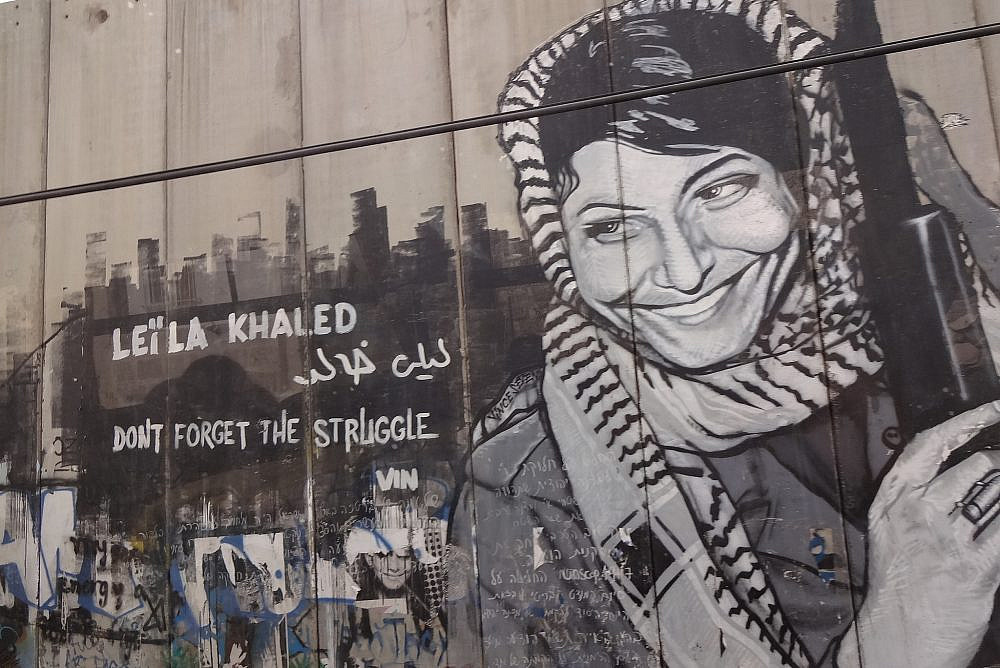Two professors at San Francisco State University invited Palestinian feminist and militant Leila Khaled to a Zoom class on Sept. 23 titled “Whose Narratives? Gender, Justice and Resistance.” But for Zoom, some college classes are a step too far.
Zoom cancelled the event, later explaining that it was in violation of the company’s terms of service. Facebook deleted the event page the day of the panel, stating that the content violates its policy of “prohibiting praise, support and representation for dangerous organizations and individuals.” Approximately 23 minutes into the talk, YouTube also stopped the livestream and disabled the registration link.
Khaled is affiliated with the Popular Front for the Liberation of Palestine, a secular and revolutionary socialist Palestinian party that the United States designated as a terrorist organization in 1997. The other speakers on the panel were all members of previously proscribed resistance and liberation movements.
A month since the SFSU webinar, Zoom censored two more Palestine-focused university events. These incidents are a reminder of the powerful yet shameful role big tech companies play in silencing voices of political dissent and erasing the narratives of marginalized communities. It also emphasizes the pressing need for companies like Zoom to publicly commit to respecting freedom of expression.
While often public outcry is directed toward the biggest, most impactful platforms, such as Facebook, Twitter, and YouTube, Zoom’s foray into censorship is particularly alarming given its rising prominence during the COVID-19 pandemic. In an era of social distancing, we have migrated even more aspects of our lives to the digital domain, increasing our dependency on online platforms for work, education, social networking, as well as critical public debates. Tech giants are acting as global internet gatekeepers, dictating what narratives are permissible, and who can enjoy the rights to freedom of expression and opinion.
This is not the first time that Zoom has bowed to political pressure and wielded its resolute authority. In June, at the request of the Chinese government, it suspended the accounts of three U.S.-based Chinese human rights activists for holding online events that did not tow the party line.
These incidents reflect just how susceptible Zoom is to influence from powerful states and interest groups. What’s worse, given the nauseating imbalance of power between tech companies and users, the stories of oppressed communities are often silenced with no access to remedy or an ability to counter the decisions of these platforms — outside the occasional public shaming.

No platform wants to be accused of supporting terrorists. However, there is no universal definition of terrorism, and governments around the world have intentionally and systematically utilized vaguely-written terrorism charges to crack down on all forms of dissent, smearing those with alternative and critical narratives even if they haven’t engaged in any political violence.
Racial justice activists in the United States have been declared extremists, and the Trump administration is labeling anyone described as anti-fascist as a terrorist. In Turkey, hundreds of journalists, activists, and political dissidents have been jailed for “spreading terrorist propaganda” or for their alleged “membership of a terrorist organization.” Similarly, the Egyptian government has weaponized its 2015 anti-terrorism law to detain activists and silence critical voices. No country is impervious.
The claim Zoom makes, as other U.S.-based social media companies do, of abiding by U.S. anti-terrorist laws is an expansive reading of the law and a harmful overcompliance to avoid liability. As the Electronic Frontier Foundation notes, while these companies use the U.S. State Department’s terrorist list as a guide for their content moderation, they are not legally required to remove content from those listed groups off their platforms. “The U.S. government has not taken the position that allowing a designated foreign terrorist organization to use a free and freely available online platform is tantamount to ‘providing material support’ for such an organization, as is prohibited under the patchwork of U.S. anti-terrorism laws.”
Private companies argue that they have a right to set their own policies and terms of services, as stressed in a letter by the SFSU president. This is true — to an extent. According to the UN Guiding Principles on Business and Human Rights, corporations like Zoom have the responsibility to respect the human rights of their users, including the right to freedom of expression.
As such, Zoom has no business in deciding what discussions take place on university campuses, or which speakers lecturers are allowed to host. As put eloquently by a Palestinian feminist group: “If digital platforms continue to have the power to dictate the terms of the conversation, and if we continue to have to ask for permission from massive technology conglomerates to share our vital histories, we can only expect a further restriction of what Palestinian scholar Edward Said called ‘permission to narrate.’”
It’s time Zoom updates its terms of services to respect and protect academic freedom and the right to free expression of all of its users against the whims of governments and pressure groups. As an American company serving a global audience, it is imperative that Zoom and other members of the Big Tech family listen to marginalized communities and develop policies in direct consultation with them. Investing resources to understand local and regional political, lingual, and social contexts and nuances is crucial, especially given the impact these policies and rules have on those communities and their rights.
Correction: The story has been updated to note that the organizers of the San Fransisco State University webinar with Leila Khaled are professors rather than lecturers.

